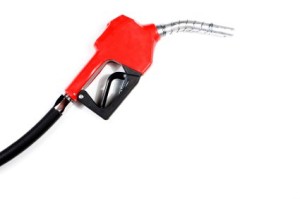 My TiVo never misses a taping of America’s Most Wanted. I get a rush of adrenalin whenever host John Walsh announces the capture of another “dirt bag.” When he profiles the nasty dudes who are still at large, I study their pictures and video, trying to memorize their features. My only problem is that I actually have a lousy memory for both names and faces, so if I ever spot anyone on the lam in my hometown, which is known for its beach volleyball and beer bars, it’s possible I’ll be fingering, not an America’s Most Wanted, but an America’s Most Wasted Party Animal.
My TiVo never misses a taping of America’s Most Wanted. I get a rush of adrenalin whenever host John Walsh announces the capture of another “dirt bag.” When he profiles the nasty dudes who are still at large, I study their pictures and video, trying to memorize their features. My only problem is that I actually have a lousy memory for both names and faces, so if I ever spot anyone on the lam in my hometown, which is known for its beach volleyball and beer bars, it’s possible I’ll be fingering, not an America’s Most Wanted, but an America’s Most Wasted Party Animal.
Another one of my absolute favorite shows is The First 48. The show follows homicide detectives during the critical first 48 hours of an investigation. It shows the gritty reality of their routines, and their race against time to find the suspect. The best part of the show is the interrogations. I have to admit I’m always amazed by how easily some of the bad guys confess. If I were a killer (and don’t worry, it’s not in my game plan), I’d be one of those who “lawyer up” and never say a word to the cops.
These true-crime shows fascinate me because as a mystery author, I needto know what makes both sides tick—the criminals and the crime fighters. And I’m always fascinated to learn how real homicide detectives work. What is it, exactly, that makes them able to crack a complicated case with few clues to go on?
In an attempt to find the answer, I once made a pilgrimage to Hollywood, where LAPD Chief William J. Bratton was signing a book of photos for which he had written the foreword. I bought the book, got his signature, and then waited patiently for the Q&A.
Then, I raised my hand.
“What is the major quality that distinguishes a great homicide detective?” I asked. “How are they special?”
The Chief spent a moment considering. Then he said, “The really good ones look at a room differently than you and I do. They can simply see more—the crime, the layout, and how it must have happened.”
Ah, that’s it. A different type of sight—that’s the key, according to Chief Bratton. I wonder how that special vision affects the everyday life of homicide cops. They must see less of a safety zone around the average person’s life than we do. They’re too used to seeing that zone violently assaulted. They’ve got cop’s eyes.
How about you—as writers, how do you study real crimes to inform your fictional ones? Have you found any shows or sources to be particularly useful? Anything you can share with me? I’m on the prowl for my next true crime fix.


Real crime shows scare me! I’ve deluded myself into thinking I can get all I need from scripted dramas.
I do have cops “on my payroll” however, for whenever I do need a dose of reality.
Camille/Margaret Grace
http://www.killerhobbies.com
oops … that’s
http://www.killerhobbies.blogspot.com
Kathryn, I don’t write crime novels but I do love AMW, and when COPS went to high def, the two make for a great Saturday night of viewing.
I cannot recommend Connie Fletcher’s series of books highly enough. WHAT COPS KNOW, PURE COP, BREAKING AND ENTERING, EVERY CONTACT LEAVE A TRACE, and the new CRIME SCENE all are full of excellent anecdotes and techniques, in the cops’ own words.
Coincidentally, I just posted a piece on her books on my blog at http://danaking.blogspot.com
Cool, Dana! I will definitely check out those sources! Thanks!
I like the true crime shows meself.
Heh…to learn about cop work I audited the POST classes at my local college. It was very helpful.
Great post.
In some places (like New Orleans during Katrina) to think like a cop may just means the criminals wear their badges. That way they can arrest the street criminals who aren’t wearing badges to whittle down the competition.
Sounds a bit like the Wild West, John!
We must have been separated at birth. I love true crime. It started with IN COLD BLOOD when I was 13 or so and I’ve been hooked ever since. I think I was the only freshman in my high school that read HELTER SKELTER for my non-fiction book report.
While I watch true crime television, I prefer to read books. The television is very straightforward and analytical, without emotion. More science, just the facts. Books add in interviews and depth and emotion that I don’t find in tv. Except John Walsh’s AMERICA’S MOST WANTED which I still watch. Maybe because he doesn’t try to be a dispassionate reporter, but someone who stands up and calls the bad guys the bad guys.
It is certainly interesting for me to read this post. Thanks the author for it. I like such themes and everything that is connected to this matter. BTW, why don’t you change design :).